 Movies and TV
Movies and TV  Movies and TV
Movies and TV  Our World
Our World 10 Places with Geological Features That Shouldn’t Exist
 Crime
Crime 10 Dark Details of the “Bodies in the Barrels” Murders
 Animals
Animals The Animal Kingdom’s 10 Greatest Dance Moves
 Movies and TV
Movies and TV 10 Box Office Bombs That We Should Have Predicted in 2025
 History
History 10 Extreme Laws That Tried to Engineer Society
 History
History 10 “Modern” Problems with Surprising Historical Analogs
 Health
Health 10 Everyday Activities That Secretly Alter Consciousness
 History
History Top 10 Historical Disasters Caused by Someone Calling in Sick
 Animals
Animals 10 New Shark Secrets That Recently Dropped
 Movies and TV
Movies and TV 10 Weird Ways That TV Shows Were Censored
 Our World
Our World 10 Places with Geological Features That Shouldn’t Exist
 Crime
Crime 10 Dark Details of the “Bodies in the Barrels” Murders
Who's Behind Listverse?

Jamie Frater
Head Editor
Jamie founded Listverse due to an insatiable desire to share fascinating, obscure, and bizarre facts. He has been a guest speaker on numerous national radio and television stations and is a five time published author.
More About Us Animals
Animals The Animal Kingdom’s 10 Greatest Dance Moves
 Movies and TV
Movies and TV 10 Box Office Bombs That We Should Have Predicted in 2025
 History
History 10 Extreme Laws That Tried to Engineer Society
 History
History 10 “Modern” Problems with Surprising Historical Analogs
 Health
Health 10 Everyday Activities That Secretly Alter Consciousness
 History
History Top 10 Historical Disasters Caused by Someone Calling in Sick
 Animals
Animals 10 New Shark Secrets That Recently Dropped
Top 10 Fascinating Secrets Taken To The Grave
Taking secrets to the grave is nothing new and eventually we will all most likely have a few secrets we take with us – perhaps to protect others or maybe to protect our own reputation or legacy. Some secrets, because of the historic consequences, or the attention given to them over the years, turn into a kind of mystery. This list consists of 10 such secrets that have been taken to the great beyond.
Erlandson started as an alfalfa farmer and started grafting and shaping tree trunks as a hobby. He would later over a period of decades train trees to grow into shapes of his own design. He experimented with birch, ash, elm and weeping willows, making loops, hearts, chairs, spiral staircases, zigzags, rings, birdcages, towers, picture frames and ladders. Erlandson found his trees to be a popular amusement and decided to create his “Tree Circus”. Erlandson would not tell anyone the secrets of his techniques and would carryout his graftings behind screens to protect against spies. Erlandson died in 1964 along with his amazing secret procedure used to propagate his trees.
Interesting Fact: In 1985, after the Tree Circus went out of business the trees were bought by millionaire Michael Bonfante and were transplanted in his amusement park Gilroy Gardens in Gilroy, California.
On Sept. 8, 1863 a fair-skinned stranger believed to be in his 20s was found by two fishermen at Sandy Cove in Digby County Canada. Both of the man’s legs had been freshly amputated and a jug of water and some bread had been placed nearby. The man was unable or unwilling to speak and is said to have uttered no more than two or three words after being found. One of the words was thought to have been Jerome and he was soon given that name. Jerome was filled with rage when certain words were spoken which led many to believe Jerome was carrying some kind of secret that he was not allowed to say. Jerome conducted himself with dignity and when offered money he would appear humiliated. There are many theories to who Jerome really was but no story has ever been proven. Jerome died April 19, 1912.
Interesting Fact: Jerome continues to be part of the collective psyche of the community where he was found. A residence for the handicapped has been named after him, songs have been written about him and he has also been depicted in paintings and a film.
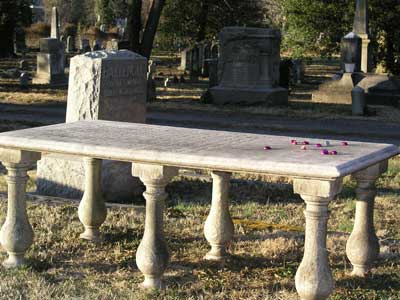
During the fall of 1816 in Alexandria Virginia two people, a man and his wife walked into the Gadsby’s Tavern Hotel. The woman was ill and it was thought she was suffering from Typhoid fever. The woman’s condition continued to deteriorate despite being attended by one of Alexandria’s doctors. The husband then summoned the doctor and hotel staff and even the owner’s wife to the room to ask a very unusual request: He asked that everyone present swear an oath never to reveal their identities. All agreed and each took the secret to the grave. Several days after the oath was taken the Female Stranger died and to this day no one knows their identity. Before disappearing, her husband commissioned an extravagant headstone and buried her at St. Paul’s Cemetery in Alexandria Virginia.
Interesting Fact: The engraving on the headstone reads:
To the Memory of a
FEMALE STRANGER
whose mortal sufferings terminated
on the 14th day of October 1816
Aged 23 years and 8 months.
This stone is placed here by her disconsolate
Husband in whose arms she sighed out her
latest breath and who under God
did his utmost even to soothe the cold
dead ear of death.
How loved how valued once avails thee not
To whom related or by whom begot
A heap of dust alone remains of thee
Tis all thou art and all the proud shall be
To him gave all the Prophets witness that
through his name whosoever believeth in
him shall receive remission of sins.
Acts.10th Chap.43rd verse
The Leather Man was a wandering vagrant who traveled in an endless 365-mile circle between the Connecticut and Hudson rivers. He was Fluent in French but communicated mostly with grunts and gestures and dressed in crudely stitched leather from his hat to his shoes. He picked up cigar butts along his way and gratefully accepted offerings of fresh tobacco or cigars that townsfolk would give him as he walked silently through their villages. When asked of his background he would abruptly end the conversation. He was so reliable in his rounds that people would have extra food ready for him at a certain time every 34 days. It is unknown how he earned money, although one store kept a record of his order: “one loaf of bread, a can of sardines, one-pound of fancy crackers, a pie, two quarts of coffee, one gill of brandy and a bottle of beer.” After a blizzard in March 1889 the Leather Man’s body was found in his Saw Mill Woods cave in Sing Sing, NY. He died from cancer of the mouth most likely due to tobacco use. His bag was found next to him and contained leather working equipment such as scissors, awls, wedges, a small axe and a small prayer book which was in French.
Interesting Fact: The Leatherman’s tombstone reads, “Final resting place of Jules Bourglay of Lyons, France, “The Leather Man”. However the story published in the newspaper that claimed to know his real name was later retracted. According to researchers his identity still remains unknown.
Arne Beurling was a Swedish mathematician and professor of mathematics. In 1940 the mathematician broke the German code used for strategic military communications. This accomplishment is considered by many to be one of the greatest achievements in the history of cryptography. Using only teleprinter tapes and cipher text, he deciphered the code that the Germans believed impossible to crack in just two weeks. Beurling created a device that enabled Sweden to decipher German teleprinter traffic passing through Sweden from Norway on a cable. When Beurling was asked how he broke the code he replied, “A magician does not reveal his secrets”.
Interesting Fact: Beurling code breaking allowed Swedish authorities to know about Operation Barbarossa (The codename for Nazi Germany’s invasion of the Soviet Union) before it occurred.
James Black was an Arkansas blacksmith and the creator of the original Bowie knife designed by Jim Bowie. Bowie was already famous for knife-fighting from his 1827 sandbar duel. But his killing of three assassins in Texas and his death at the Battle of the Alamo made him, and the blacksmith’s knife, legends. Black’s knives were known to be exceedingly tough yet flexible. Black kept his methods for creating the knife very secret and did all of his work behind a leather curtain. Many claim that Black rediscovered the secret to producing Damascus steel which is a type of steel used in Middle Eastern sword making from 1100 to 1700 that could cut through lesser quality European swords. The original techniques to make James Black’s knife cannot be duplicated even today. Black died on 22 June 1872 in Washington, Arkansas.
Interesting Fact: In 1839 shortly after Black’s wife’s death, he was nearly blinded when his father-in-law and former partner broke into his home and attacked him with a club, having objected to his daughter having married Black years earlier. After the attack Black was no longer able to continue in his trade.
Edward Leedskalnin was a Latvian emigrant to the United States and amateur sculptor. Leedskalnin single-handedly built the monument known as Coral Castle in Florida and is also known for his unusual theories on magnetism. Leedskalnin was only 5-ft. tall and weighed 100-lbs and aligned many of his stones astronomically and integrated them into a grand architectural plan based on mathematical and astronomical data. Leedskalnin used only simple tools to cut, trim and assemble over 3 million pounds of dense coral blocks to build his castles. When asked, “How did you build the Castle?” he replied, “It’s not difficult really the secret is in knowing how.” When Leedskalnin moved his Coral Castle ten miles away to Homestead Florida he asked the trucker to look away when it came time to load and unload the coral stones. Leedskalnin died from malnutrition due to stomach cancer in 1951 at the age of 64 without ever revealing his secret.
Interesting Fact: Billy Idol wrote and recorded the song “Sweet Sixteen” and filmed the video in the Coral Castle. The song was inspired by the story of Leedskalnin’s former love, Agnes Scuffs, who is believed to be the main reason Leedskalnin built the Coral Castles.
Johann Bessler was born in Zittau, Germany and built a machine that he claimed was self-moving. By 1717, he had convinced thousands of people, from the ordinary to the most prominent that he had indeed discovered the secret of a self-sustaining mechanism. The machine underwent numerous tests and passed rigorous inspections. It was made to do heavy work for long periods, and in an official test it ran continuously for 54 days. The internal design of the machine was always closely guarded by its inventor. Plagued by paranoia and a nasty temper and with no patent laws to protect him Bessler destroyed the machines in a fit of anger and took his secret to the grave. The true motive power behind Bessler’s demonstrations, and the energy source which moved the wheel’s internal weights still remain unexplained. Obviously a machine like this violates the law of conservation of energy, which states that energy can never be created or destroyed but it should then be asked how did Bessler fool so many people for so many years?
Interesting Fact: Recently, a series of coded features has been discovered among various papers published by Bessler. He constructed a variety of codes from very simple to very complex which would in time could be collected together to reveal his secret. Some of these codes have been solved but many others remain un-deciphered.
Benjamin Franklin is one of the most well known Founding Fathers of the United States. Other talents included author, printer, satirist, political theorist, politician, scientist, inventor, civic activist, statesman and diplomat. In 1730 Franklin acknowledged an illegitimate and only son William. He was raised by his father Ben and his common-law wife Deborah Rea. Some of the many theories speculated is that the reason for not disclosing William’s mother is the couple was not married when William was born and Franklin wanted to take all of the blame so as not to allow any dishonor to come to Deborah. Other evidence suggests his mother was a prostitute. William’s mother official identity still remains unknown.
Interesting Fact: In 1752 when William was 21 he assisted his father in the famed kite experiment. William later became a steadfast Loyalist throughout the Revolutionary War despite his father’s role as one of the most prominent Patriots during the conflict, a difference that tore the two apart.
Stradivari was an Italian crafter of stringed instruments such as violins, cellos, guitars and harps. For centuries scientists and historians have tried to figure out Stradivari’s secret to his instrument making. Recently modern research tools and devices such as scanning lasers are aiding researchers in testing the theory that the careful shaping of belly and back plate, in order to “tune” their resonant frequencies could be an important factor. Glues and varnishes used by Stradivari have also been analyzed extensively and could also attribute for the sound and quality of his instruments. Experts concede there remains no consensus on the single most probable factor to explain the superior sound of the Stradivarius and most likely it is some combination of all, and something not yet recognized.
Interesting Fact: It is estimated that Stradivari made around 1100 instruments. Today only 650 instruments remain, including approximately 500 violins.
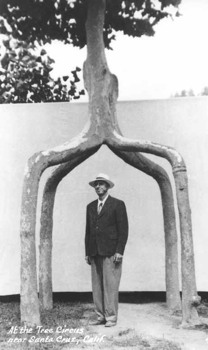
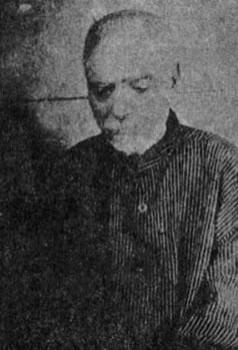
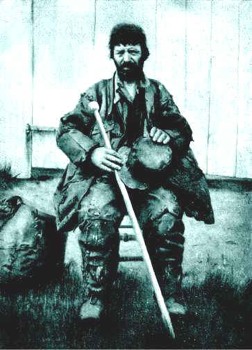
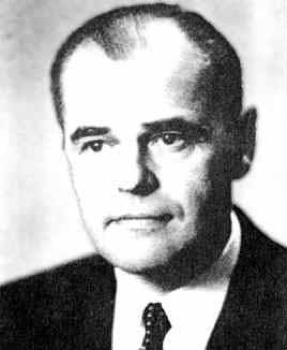
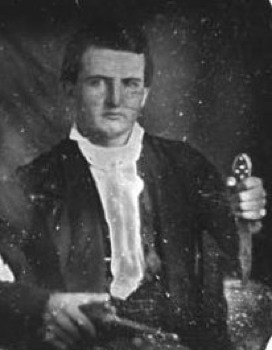
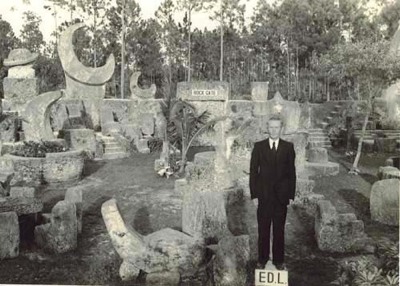
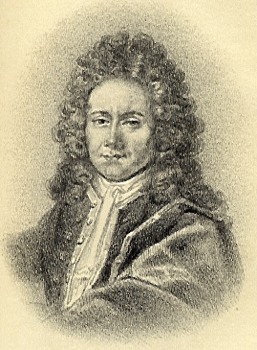
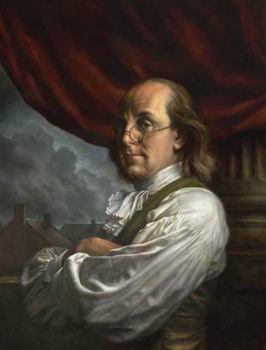
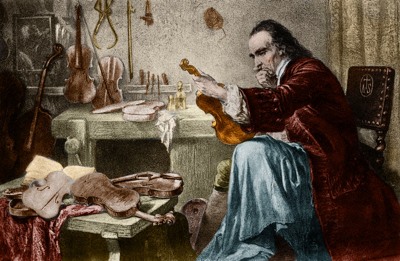

![10 Creepiest Photos Of Victims Taken By Serial Killers [DISTURBING] 10 Creepiest Photos Of Victims Taken By Serial Killers [DISTURBING]](https://listverse.com/wp-content/uploads/2018/09/Regina-Kay-Walters-featured-2-150x150.jpg)






